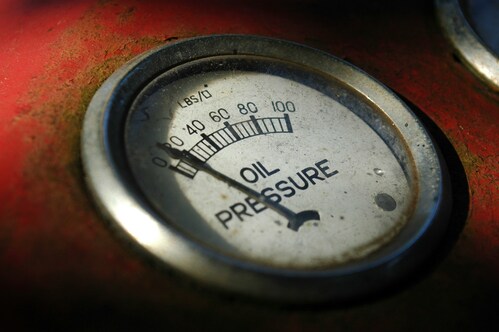Maintaining your vehicle’s engine requires careful attention, and one critical component is monitoring the engine’s oil pressure. An oil pressure indicator is essential for this purpose, providing real-time data on the oil pressure within your engine. However, choosing the right one can be challenging due to the variety of options available.
This mini-guide will help you learn about the many gauge kinds, their characteristics, and how to choose the right one. By the end, you’ll be well-equipped to make an informed decision. Explore the details of finding your vehicle’s perfect oil pressure gauge.
Types of Oil Pressure Dial
Understanding the different types of gauges can help you make an informed decision. Here are the main types to consider:
Mechanical
They are directly connected to the engine’s oil system. They are known for their accuracy and reliability, making them popular among car enthusiasts and professionals. However, they require a more complex installation process and regular maintenance.
Electrical
Electrical or electronic sensors measure oil pressure and display the readings on a digital or analog interface. They are easier to install and maintain than mechanical and are suitable for most modern vehicles.
Analog
They display the oil pressure using a needle on a dial. They are easy to read and have a classic appearance that many drivers prefer. While they might not be as precise as digital, they are typically sufficient for everyday use.
Digital
They provide readings on an electronic display, offering precise and easy-to-read information. They often come with additional features such as alarms and data logging, making them ideal for those who want detailed information about their vehicle’s performance.
Factors to Consider When Choosing a Gauge
Several factors should be considered to ensure you select the best gauge for your vehicle. Here are some key considerations:
Compatibility
Ensure that they are compatible with your vehicle’s make and model. Some gauges are designed for specific types of engines or cars, so checking this before purchasing is crucial.
Accuracy
Accuracy is crucial when monitoring oil pressure. Mechanical engineering is generally more accurate, but modern electrical engineering offers excellent precision. Choose a gauge known for its reliability and accuracy.
Ease of Installation
Think about how simple it is to set up the gauge. Mechanical installations are more complicated and require more specialised knowledge, but electrical installations are typically easier to use. If you are uncomfortable with complex installations, opt for electrical.
Durability
They should be built to withstand the harsh conditions under the hood. Seek out gauges crafted from sturdy materials that can withstand extreme heat and vibrations without compromising precision.
Additional Features to Look For
Modern ones often come with additional features that enhance their functionality and convenience. Here are a few to consider:
Warning Lights and Alarms
Some gauges include warning lights or audible alarms that alert you if the oil pressure falls outside the safe range. This feature can be handy for catching problems early and preventing engine damage.
Temperature Monitoring
In addition to that, specific advanced gauges are designed to monitor not only oil temperature and pressure but also other key performance indicators essential for optimising engine efficiency. This provides a more comprehensive view of the engine’s condition and helps maintain optimal performance.
Choosing the correct oil pressure gauge for your vehicle is essential for maintaining the engine’s health and performance. Consider factors such as compatibility, accuracy, ease of installation, and durability to find a gauge that meets your needs. Additional features like warning lights, temperature monitoring, and customisable displays can further enhance the gauge’s functionality. Having the right instrument is crucial for keeping your vehicle in excellent condition and preventing costly repairs.



